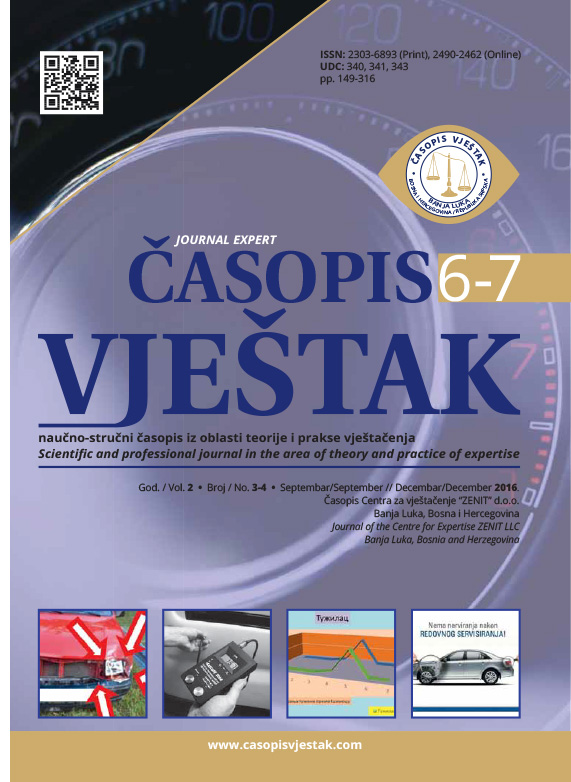Term and Basic Elements of Crimes Against Humanity
Abstract
Crimes against humanity are attacks on the fundamental values of humanity and it is this universality of the protective object that gives international dimension to these crimes. The commission of these crimes violates the whole humanity, thus going over the boundaries of national sovereignty, and therefore there is a universal interest for the repression of these crimes. Despite the general consensus on their severity and rich case law, primarily of international ad hoc tribunals, the commission of these crimes has remained a persistent phenomenon until today, and the detection, prosecution and adjudication of perpetrators is one of the biggest challenges of the international criminal law.
Over time, the formulation of such crimes and their legal elements has crystallized and so, basic criteria to all definitions have been generally accepted today - that the crimes against humanity include crimes of violence against individuals regardless of their nationality and whether they were committed in times of war or peace, and these crimes are an expression of persecution of a group of people that may be identified. A crime against humanity in international law is raised to the status of jus cogens, which means it is accepted as an irrevocable element of international law whose derogation is not possible in any case. They are subject to universal jurisdiction, which implies that any country may punish the perpetrators, regardless of the place at which the crime was committed.
